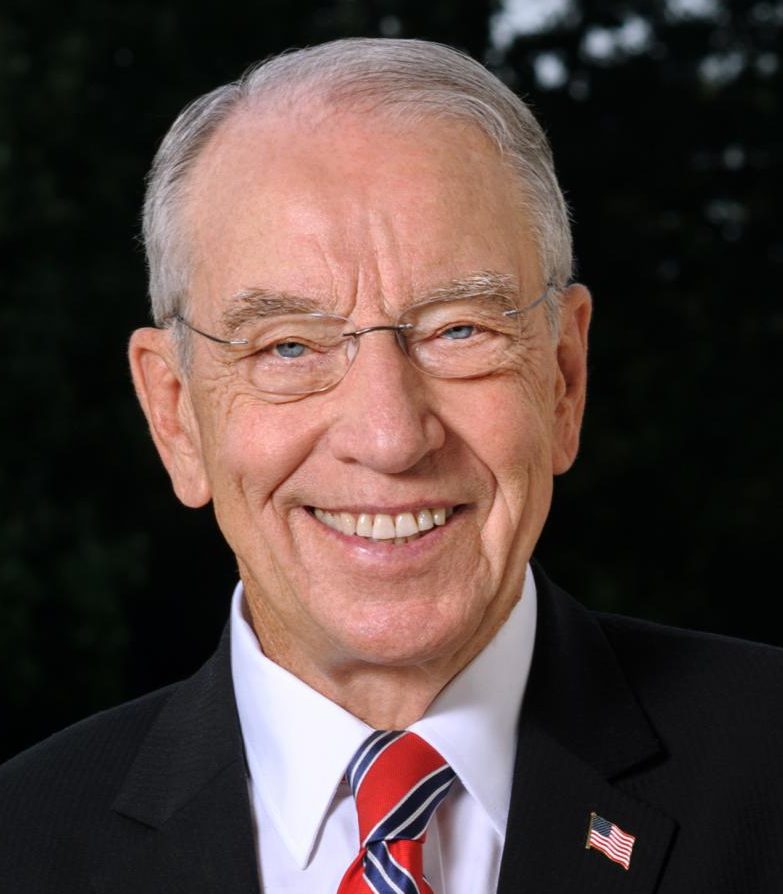Q: What’s your take on President Biden’s first budget?
A: The president is borrowing a page from the Obama administration to “never let a serious crisis go to waste.” It’s as clear as the day is long what the Biden administration set out to do since day one of his presidency: Use the pandemic to shift the political landscape, reshape the economy and expand the social safety net by squeezing trillions of dollars from the American taxpayer for generations to come. Biden’s bloated budget overtaxes, overspends and overpromises. It’s a massive government overreach that would saddle future generations with deficit spending as far as the eye can see. The $6.3 trillion spending blueprint effectively would redesign the size and scope of the federal government, shoehorning Uncle Sam’s footprint into every aspect of American life, from the workplace to households with cradle to grave entitlements that include one-size-fits-all universal preschool, child care, paid family leave, community college, elder care and more. There’s no sugar-coating what Biden’s progressive pipe dream would do to the economy. America can’t tax, spend and borrow our way to prosperity. In fact, the nonpartisan Congressional Budget Office agrees how Biden’s agenda would flout the entrepreneurial spirit. Increasing taxes on labor and capital to pay for expansive social welfare programs would decrease economic growth and productivity. When taxes go up on labor, the incentive to work goes down. When taxes go up on capital, the incentive to save and invest goes down. One of the most basic principles of tax policy 101: when you tax something, you get less of it, from wage growth and job creation to investment in innovation.
By the end of Biden’s term in 2024, the debt ratio as a share of the nation’s economy is projected to reach nearly 114 percent. What’s more, the levels of federal spending would average 24.5 percent of the nation’s economy for a decade. Let’s put that in historical context. Biden’s budget blows beyond the massive government spending during WWII and FDR’s New Deal when public debt measured to economic output reached 106 percent in 1946. Let’s also not forget it was Vice President Biden who promised us that President Obama’s trillion dollar stimulus package and its “shovel-ready” projects would lead us out of recession. Now he’s pitching a $6 trillion spending spree that calls for this Iowa farmer to stick to his guns on fiscal discipline. Otherwise, this administration will hook up Uncle Sam’s fire hose to the U.S. Treasury and fuel the fires of inflation that harm lower income families and seniors on fixed incomes the most. And that puts the Federal Reserve in a pickle to hike interest rates to keep the lid on inflation, which in turn, would increase the government’s borrowing costs, quickly spiraling our country even deeper into debt.
Q: What’s missing from the president’s budget proposal?
A: Its detachment from fiscal reality is most glaring. Beyond that, President Biden ignored homegrown biofuels when he put his clean energy proposals on paper. Instead, he proposes massive spending to pump up the sales of electric vehicles (EV) in the United States, including directives for electrification of the federal fleet, from the U.S postal service to the USDA. As a longstanding champion for alternative, renewable and homegrown energy, I’m disappointed the president shunned America’s biofuels as an environmentally friendly fuel additive that has helped America’s transportation fleet get motorists where they need to be and truckers deliver consumer products across the country with fewer greenhouse gas emissions. Americans expect policymakers to make realistic, reasonable decisions that protect consumer choice and strengthen U.S. energy security in an environmentally sustainable way. Energy policy also needs to take into account the livelihoods and local economies that would be impacted by pulling the plug on renewable and fossil fuels. Biden’s effectively putting America’s transportation energy eggs into one basket. Even if all U.S. households could afford to kick their gasoline-powered cars to the curb and buy an EV car this very day, our nation’s energy grid needed to charge hundreds of millions of all-electric vehicles would take decades of development, installation and investment to meet demand. Last year 60 percent of electricity generation was from fossil fuels — coal, natural gas and petroleum. That means a majority of electric vehicles aren’t zero emissions at all and replace gasoline with other fossil fuels.
The president’s budget showers hundreds of billions of dollars into federal incentives for U.S. consumers to jump on the EV bandwagon, electrify school buses and install EV chargers across the country. Even that’s a gnat on the windshield when you factor in the heavy lift it would take to shift 250 million cars on the road to electric vehicles and install charging ports at homes, businesses and service stations across the U.S. First, Biden killed the Keystone XL Pipeline and recently suspended drilling leases in Alaska to appease climate activists. Now, his first budget ignores biofuels. The administration also ignores the negative environmental impact created by lithium mining needed for EV batteries and power storage. As father of the federal wind energy program and champion for the Renewable Fuel Standard, I’ll continue pushing for an all-the-above energy strategy that strengthens U.S. energy security and independence without pulling the plug on entire sectors of the economy.
















